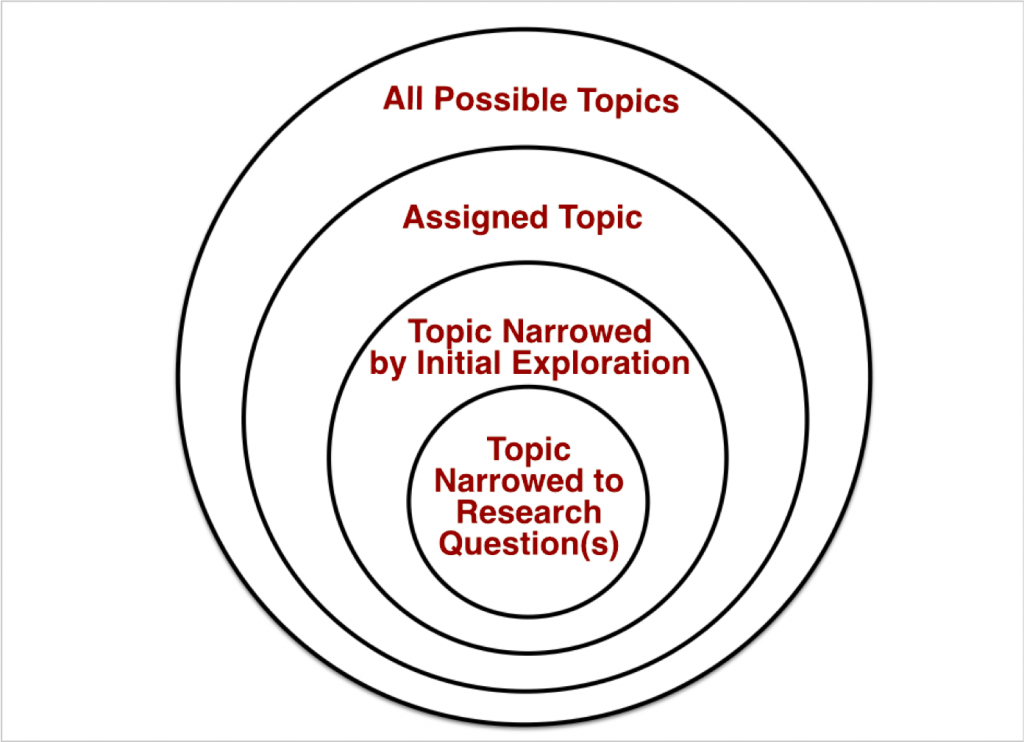


Many students think that research is like this -- a straight line from start to finish.

(Credit: NCSU Libraries)
But in fact, research is more complicated than that. It's not a straight line.

(Credit: NCSU Libraries)
You're going to find as you get started on a project that you may need to revise your topic. It's a process that should hopefully lead you from a broader to a more specific, focused topic.

(Credit: Ohio State University Libraries, Choosing & Using Sources)
PICO searches convert your need for information into a focused question, something you can use when searching to find the research you want.
First, formulate the clinical questions in the PICO framework:
P - Patient/Problem, Disorder, Condition. (It's about who and what. Children? The elderly? College students?)
I - Intervention, Exposure, Treatment. (It's about how. What's going to happen to them?)
C - Comparison (e.g. placebo, no treatment, alternative treatments).
O - Outcome. (Disorder management? Behavioral improvement?)
Type of Scenario (Question): Therapy/Prevention, Diagnosis, Etiology, Prognosis, others
For more guidance on PICO questions as a search strategy, please check out this libguide: https://canberra.libguides.com/c.php?g=599346&p=4149722
PsycArticles provides full-text access to all of the American Psychological Association journals and many other psychology journals. It is one of the most comprehensive databases of research papers for psychology and related fields.
The video above, though produced by another college, provides a basic overview of the same features we showed you in your class. You can use it as a reference for using PsycArticles. The video should automatically start at 28 seconds in (you don't need the information which is specific to the other college).
You will need to login using your WVU username/password off-campus.
The Annual Review of Psychology is a great resource for reviews of the significant published research in psychology by topic. If you need to understand an area within psychology or emerging topics, this is a great place to find scholarly summaries.
An easy to read listing of basic mental health statistics collected by the National Center for Health Statistics with links to more detailed reports and data sets.
Report from the National Institutes for Mental Health on the current number of Americans diagnosed with mental disorders listed by type of disorder.
LibKey Nomad connects your browser with the college library's holdings, providing links to full-text copies of scholarly articles from Wikipedia, PubMed, and more.
Download for free from the Chrome Web Store.
